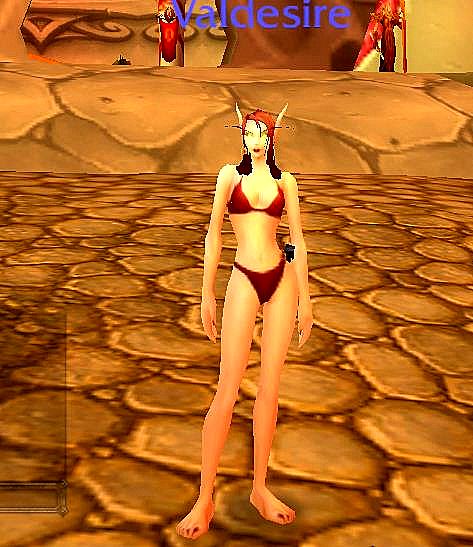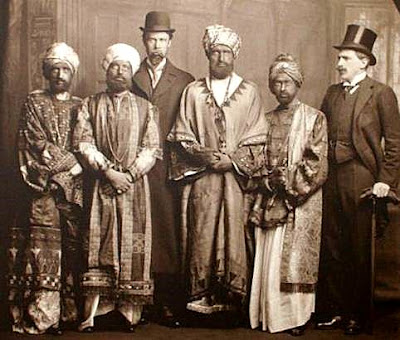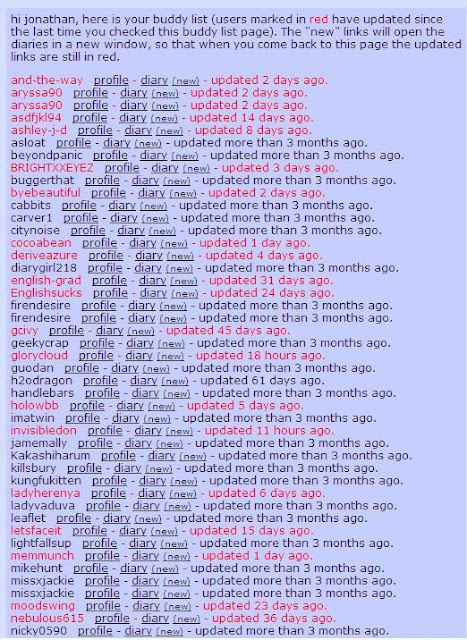The entertainment and learning continues.
I didn't think playing World of Warcraft would become like a game of Monopoly, kind of.
My wife decided she too should be introduced to our son's world. Her response is to moan about how long he spends online. My reposte is always that he is learning (he is supervised, he does this in the sitting room).
I haven't taken notes (perhaps I should), but I am aware that there are bonds with his closest friends that transcend the screen.
Leaving my Avatar in their safe hands I go off to do some errands.
I return to find this.

I had left her at Level something with oodles of gold and a sack full of weaponry; she was also clothed, I am informed that to buy some vital spell my son had advised my wife (operating the avatar) to sell all her clothes.
My son then delights in showing the she will dance 
In narrative terms I would say my son is playing the role of the 'Trickster'.
What compensates him for having to teach/shadow his parents in this world is that he will from time to time do this. It isn't difficult to imagine what kind of tricks the highly adapt and experienced Virtual Worlders in a class of young teenagers would (do) behave if given the chance to gain or exploit the upper-hand.
Why female?
As I went through the various characters in the alternative 'camps' my son muttered things about his perceptions of the types of people in the avatar skins. He had no issues with this 'character'. I feel disembodied, primarily because I have entered a world that he has mastered, so like going skiing with someone who does extreme and heli-skiing while I am on the nursery slopes (with a sledge).
As I passed the 'controls' to my wife, and indeed, in my absence my son can be this character anyway, it had me thinking of 'her' in the same way as one of the many pet guinea-pigs we had until recently. Part of the family, but at arms' length.
Jonathan Franzen bemoaned authors who could only write as themselves, indeed at Harvard being part of a writer's group where most people could do little else than invent characters who had been on a gap year or had a difficult term at school.
It is insightful to think yourself into the role of a.n.other, old, young, male, female, different cultures and class. Doing the reading I am impressed and informed by those with series injuries or disabilities who can find a compensatory form of existence when playing in these worlds (exactly like the movie Avatar of course in which the protagonist, paralysed from the waist down, finds legs).
Thinking further, might or could behaviours be like that of controlling a ventriloquist's dummy?
That you let your avatar be your more bold and outspoken alter-ego?
A mindfield for teachers. I wouldn't like to enter such a world with a bunch of young teenagers!
This is why South Korea has it right putting all new teachers through e-learning training.
I learnt that World of Warcraft is far too robust for cheats, indeed that the culture of its creation mean there are none. In one respect, again, like a movie (the narrative theme), the world is consistent even though it is of course 'other wordly'.
I also learn that my wife has bought stuff from other avatars in the belief that these purchases would get our son through a level without him having to spend hours/days on a quest. I think she should appreciate that this thing is never ending.
In a learning context you can't buy yourself a skill or knowledge set.
Plagiarism tools should pick it up if you have bought a paper, but more importantly there will be an assignment at some stage that is robust and designed to test what you know. However, as I have shown with my wife taking over my Avatar, could not, and do not people do this?
As the learning, not the qualificaiton, is that what matters to me in MAODE might I share this entire experience with another? Split the cost and do the work together, but only one of us taking the credit?
We are a devious lot, we humans. If something can be got for free ...

Regarding 'dressing-up' and role play I was reminded as I ran through a list of authors I have read extensively that Virginia Woolf and some friends once dressed up as Middle-Eastern Royalty and were entertained by the officers on a vessel of Her Majesty's Navy.
There is in us, all of us (certainly as children), to dress up and role play as a form of learning (and entertainment). Are virtual worlds not simply playing to this innate trait?
And rock musicians? From Alice Cooper and David Bowie to Lady Gaga and Justin Bieber
Many are acting out a fantasy or role-playing.
Are we not obliged to take silly-names in things like Twitter anyway as most variatons of our own name have gone? Was there not a first-adopter, classroom clown approach to email addresses too that some might regret, certainly change in due course?
As a diarist going online I regret being open simply because I see now how open and revelatory people want to be, which is best achieved by remaining anonymous, the best and apt blogger going by the name of 'Invisabledon' (see below) being one such person who after a decade I can only know as a bloke in his 40s or 50s living in North America. Going in as myself had its compensations from a 'branding' point of view but such first-name 'public' secret diarists are rare. (I locked this diary in 2006 and am slowly migrating some of the 17000 pages to www.mymindbursts.com).

This from Diaryland shows that kinds of names people adopt. Do they then live up to the names they choose? Often they do.
If you are interested in blogging, this platform, launched in 1999, has barely changed though copied a thousand times over. Here a limited list of 'buddies' (75) are revealed in a simply menu that tells the blogger when someone last updated. I've long ago abandoned blogging here, but you would edit out those who didn't update, certainly once they'd got the the 3 month mark. I can't think of any blog platform that gives you this kind of insight into a selection of fellow participants.
Parameters, as here, have their virtues.
(Like learning music, you don't start with a cathedral organ, but a piano and Grades 1-3. Being given the full orchestra may be overwhelming).
Something else they have are 'Diary Rings', sets of like-minds who opt in to a huge variety of 'circles of friends' which sounds like (and is like) Google + Circles.
The problem/issue Diaryland has, and they have stuck with this, is to refuse ALL advertising anywhere so leaving it, clearly, underfinanced so unable to modernise.
For a blog coach looking for a 'training pool' to put novices testing the water I can think of no better place. You even have to learn or remember some Basic HTML.
